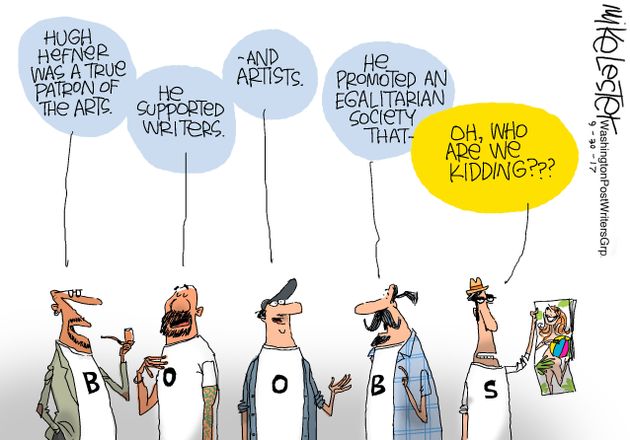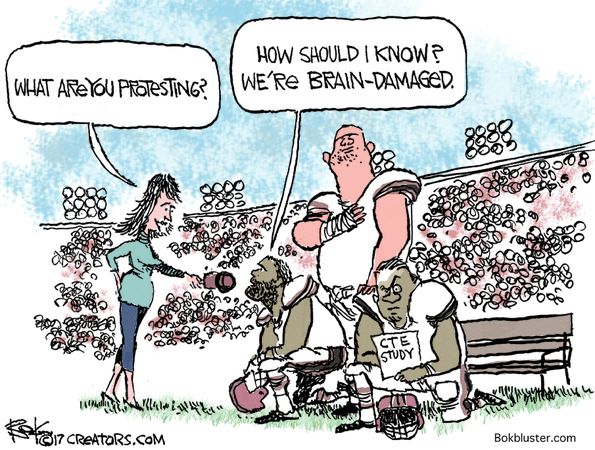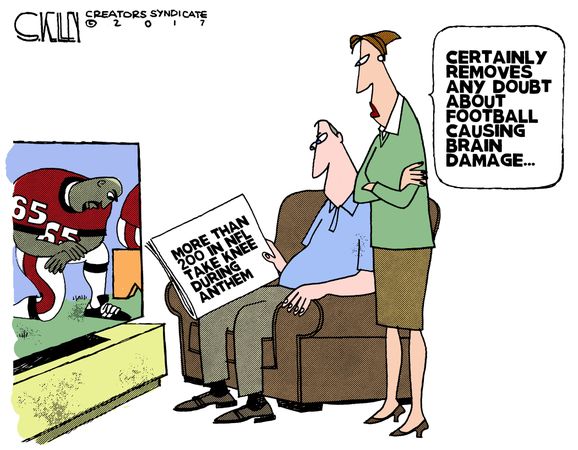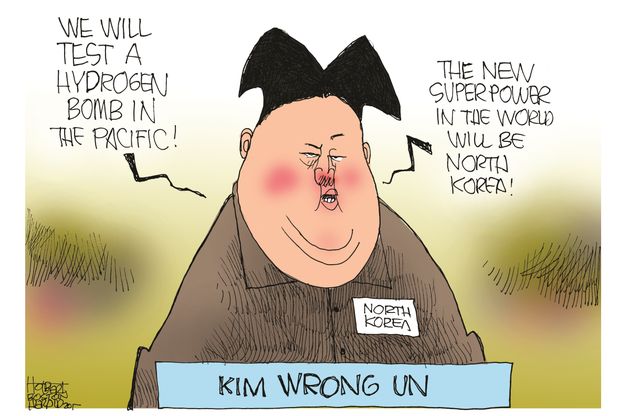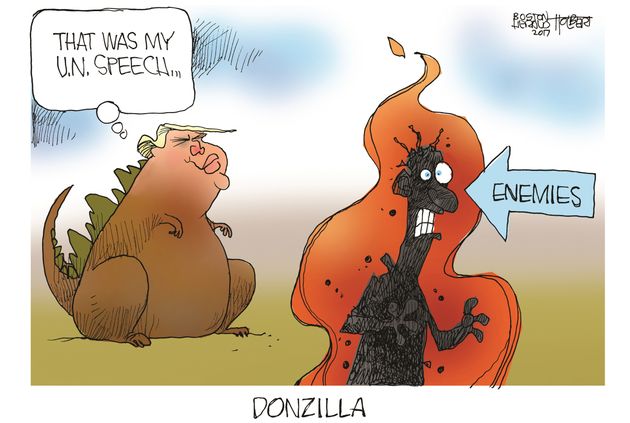I've already published my opinions on social media (principally Twitter and Facebook, usually reprinted in blog posts). Basically, I do not like to see nationalist rituals, like the National Anthem, mixed with sports. But if you are going to do it, do it respectfully.
Let's set the stage. last season, SF 49er QB Colin Kaepernick
became notorious for his ("progressive") political protests of sitting, later kneeling during the national anthem. (Kaepernick opted out of his contract and became a free agent. As of this post, no NFL team has signed him.) A few other players carried the protest further, into this season. Trump notoriously noticed the incidents and basically told the owners that they should fire the players engaging in such protests. This perceived threat resulted in the backlash of last Sunday's nearly universal adversarial response from innumerable players on the sidelines showing solidarity with the malcontents and/or against Trump's meddling, owners and/or coaches locking arms with players on the field, teams refusing to come out, and owners/teams (over the past week) releasing statements distancing themselves from Trump's provocations.
Now there are a lot of nitpicking arguments going on: is there any rule about player conduct during the National Anthem, are the teams required to be on the sideline, even how long teams have been on the field for the National Anthem in terms of tradition. (I got such a response from LFC to a post I made on their photo, which was an exchange from some leftist terming conservative/patriot responses to unconventional behavior as fascist; the FB exchange pointed out the government healthcare was also fascist, i.e., aren't you being a hypocrite? LFC mocked my reference to a tradition of decades citing teams have only been required to be present on the field during the Anthem since 2009.
It's not like I keep a stockpile of NFL games since the 1960's for the opportunity to prove someone wrong regarding the National Anthem playing with players on the field. Some of the skeptics suggest that television preferences kept players off the field before 2009. This really doesn't make a lot of sense; if somehow this was a priority of commercial coverage, why would the NFL have made the 2009 rule? Take this
anecdotal comment:
Maslowski played for the Chiefs from 1999 to 2004 and always stood during the singing of the anthem.
From where? Inside the locker room?
What motivated the 2009 rule change? Inconsistent policies across teams? A proactive change in response to notorious incidents in other sports, like the NBA? It really isn't material to the key point.
Now what about Trump's behavior, urging NFL owners to terminate football players who have been violating norms during the National Anthem? To a certain degree, he has a point. The NFL has a policy against a variety of self-serving or indulgent behaviors on the field, and the rules expect players to be on the sideline during the playing of the Anthem. While one can quibble over how well-defined the NFL rule is, there is an existing US code standard:
36 U.S. Code § 301
(C) all other persons present should face the flag and stand at attention with their right hand over the heart, and men not in uniform, if applicable, should remove their headdress with their right hand and hold it at the left shoulder, the hand being over the heart
Now there is also a kerfuffle about an Internet meme going around (I may have cited it in one of my own tweets), but it's more of a
nuanced distinction:
"The National Anthem must be played prior to every NFL game, and all players must be on the sideline for the National Anthem. During the National Anthem, players on the field and bench area should stand at attention, face the flag, hold helmets in their left hand, and refrain from talking. The home team should ensure that the American flag is in good condition. It should be pointed out to players and coaches that we continue to be judged by the public in this area of respect for the flag and our country. Failure to be on the field by the start of the National Anthem may result in discipline, such as fines, suspensions, and/or the forfeiture of draft choice(s) for violations of the above, including first offenses."
Please note, the meme going around several days ago said it was in the Official NFL Rulebook which is different from the Game Operations Manual. The Rulebook handles the rules of the game. The Game Operations Manual handles how teams and players should conduct themselves.
I've also seem similar distinctions being made, e.g., policies defined in the Game Operations Manual vs. the rules in the Game Rulebook. And in fact the NFL implied as much when it announced there would be no sanctions over last Sunday; the very discussion of sanctions implicitly affirms its right to impose sanction. Then there is rule 5 itself:
" Throughout the period on game-day that a player is visible to the stadium and television audience (including in pregame warm-ups, in the bench area, and during postgame interviews in the locker room or on the field), players are prohibited from wearing, displaying, or otherwise conveying personal messages either in writing or illustration, unless such message has been approved in advance by the League office. Items to celebrate anniversaries or memorable events, or to honor or commemorate individuals, such as helmet decals, and arm bands and jersey patches on players’ uniforms, are prohibited unless approved in advance by the League office. All such items approved by the League office, if any, must relate to team or League events or personages. The League will not grant permission for any club or player to wear, display, or otherwise convey messages, through helmet decals, arm bands, jersey patches, or other items affixed to game uniforms or equipment, which relate to political activities or causes, other non-football events, causes or campaigns, or charitable causes or campaigns. Further, any such approved items must be modest in size, tasteful, non-commercial, and noncontroversial; must not be worn for more than one football season; and if approved for use by a specific team, must not be worn by players on other teams in the League."
And we know that the league, on multiple occasions,
has threatened to sanction players over violations of those rules.
As I was saying, Trump certainly would have been within his rights to criticize the NFL's perhaps too lax enforcement of professional behavior during the playing of the anthem. And certainly behavior during the anthem is a legitimate issue; it was, for example, during the 2008 Democratic primary when a group of candidates placed their hands across their hearts--except Barry Obama, whose hands remained folded at his waist.
But when Trump urged termination of malcontents, it was an existential, disproportionate threat to one's livelihood for expressing oneself--far beyond prescribed NFL sanctions, such as a suspension or fine.
In fact, if you read among the earliest of my tweets on the kerfuffle, I was arguing against Trumpkins, saying Trump wasn't simply a mere citizen exercising his constitutional right to free expression. As the President, he is sworn to uphold the Constitution and its values, including the right of political dissent. I thought that his actions constituted a possible violation of his power as President. For someone who has routinely threatened business (e.g., Ford, Carrier, Nabisco, etc.) with government sanctions for the "wrong" decision (say, shifting production to Mexican plants), it's not unthinkable for Trump to threaten the NFL or its owners if they failed to respond according to his preferences.
But what about the players themselves? Well, I make a distinction between what they do privately vs. what they do on the field. I don't have an issue with NFL players voting their conscience or speaking their minds (with any necessary caveat that their views do not reflect the position of their teams or the NFL) on their own time. However when you voluntarily sign an NFL contract, you voluntarily agree to certain restrictions on your behavior, including team owner policies and NFL rules and code of behavior. These may include, over and beyond the national anthem, drug tests and/or morals clauses (e.g., a Pittsburgh quarterback was sanctioned over allegations of sexual misconduct). If and when you break these obligations, you face the risks of sanctions, even termination, depending on your contract. And there are good reasons for this; for example, player misconduct could expose the team or league to economic consequences (e.g., television ratings, ticket or merchandise sales, etc.) or lawsuits.
There are differences among libertarians on this issue. To give an example, Ron Paul recently
appeared on Alex Jones and had relevant comments on owner property rights and
cultural marxism. One of his biographers published a strong dissent on Reason.com. For the most part, I agree with Paul's analysis, but I don't agree the national anthem is some sort of quid pro quo for sponsoring interventionist policies overseas.
But it looks like last Sunday's protests didn't help the NFL. Viewership is down over 10% from last season (which could translate to millions in lost revenue); there are reports of softening ticket sales, the jersey for the Steeler who alone stood for the anthem last Sunday has become an Internet best seller. Could the military, which advertises for recruitment, cut their commercial spots? (I saw that game beginning at a laundromat last Sunday). The NFL Commissioner has lower approval ratings than Trump. There are
reports that Americans side with Trump over the protests from 58-65%? I myself am joining an NFL boycott until at least through Veterans Day (although to be honest, I've watched the NFL less regularly over the last few years, mostly to dwindling interest vs. politically motivated reasons.
